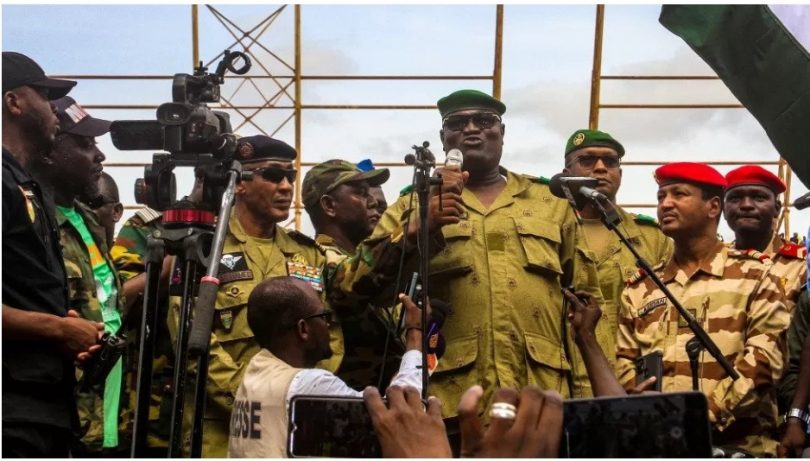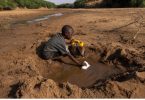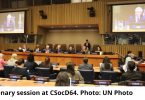In the heart of West Africa, a political crisis in Niger has stirred a contentious debate within the Economic Community of West African States (ECOWAS) about the possibility of military intervention. The crisis erupted following a military coup on July 27, 2023, which led to the overthrow of President Mohamed Bazoum. The situation has since escalated, with ECOWAS contemplating military action to restore democracy in Niger. This article delves into the multifaceted aspects of this complex issue, examining the motivations, challenges, and potential consequences of such an intervention.
The threat of military force to end the coup in Niger has led to significant divisions within the region. While some ECOWAS members, including Nigeria, the Ivory Coast, and Senegal, favour military intervention, others are strongly opposed. Nigeria, in particular, is under internal pressure as protests in cities like Kano have erupted against the possibility of military action in Niger. Even within pro-intervention states, not everyone supports the idea.
Furthermore, neighbouring countries such as Chad and Algeria, which are not members of ECOWAS, have also voiced their opposition to military force. This division among regional and international players underscores the complexity of the situation and the challenges involved in reaching a consensus on how to address the crisis.
The Stakes for ECOWAS
One of the primary factors pushing for ECOWAS intervention is the desire to end the recent surge in coups across West Africa, starting with Mali in 2020 and spreading to Guinea and Burkina Faso. The fear of destabilising coups in other West African states, if the coup in Niger goes unchallenged, has intensified the call for action.

Additionally, the African Union has backed ECOWAS in condemning the coup and suspending Niger’s membership, while the United States and France, both with strategic interests in Niger, may be compelled to provide military support if ECOWAS proceeds with an intervention. France, in particular, relies heavily on Nigerien uranium to power its nuclear reactors.
Challenges and Potential Consequences
Despite the push for intervention, the coup in Niger enjoys significant popular support, making military action a contentious endeavour. An intervention in Niger is also riskier than previous ECOWAS actions due to the country’s size, geographical position, and role in the fight against armed rebel groups.
One possible outcome of military intervention is the exacerbation of the crisis, with coup leaders withdrawing from the capital, taking President Bazoum with them, and engaging in armed operations to destabilize the situation. Such a scenario could lead to a protracted war of attrition and further regional instability.
Moreover, an intervention could trigger the involvement of other West African countries like Mali and Burkina Faso, potentially escalating the conflict into a regional war within ECOWAS. This could have far-reaching consequences, destabilizing neighbouring countries that have so far been spared from unrest.
The Role of Mediation
Efforts at mediation are ongoing, with Algeria playing a key role in facilitating talks between ECOWAS and the coup leaders. These talks aim to find a compromise that would avert military intervention and restore civilian rule in Niger. The success of these mediation efforts could be instrumental in determining whether ECOWAS proceeds with military action.
The Historical Context
To better understand the complexities of the current crisis in Niger and the implications of potential military intervention, it’s essential to examine the historical context and the role of foreign powers in the region.
Niger’s History of Instability
Niger, like many West African countries, has a history marked by political instability. Since gaining independence from France in 1960, Niger has experienced numerous coups, military rule, and periods of political turmoil. The most recent coup in 2023 was part of a worrying trend of coups that have plagued the region, starting with the coup in Mali in 2020, which set a troubling precedent.
Foreign Influence in Niger
Foreign powers have played a significant role in Niger’s political and economic landscape. France, as the former colonial power, has maintained a strong presence in the country, particularly in the realm of uranium mining. Niger is one of the world’s leading producers of uranium, and France relies heavily on Nigerien uranium to fuel its nuclear reactors. This strategic interest has given France a vested interest in maintaining stability in Niger.
Additionally, the United States has a military presence in Niger, primarily focused on counterterrorism efforts. Niger’s location in the Sahel region has made it a critical hub in the fight against insurgent groups, including Boko Haram, Islamic State West Africa Province (ISWAP), and other extremist organizations. The presence of U.S. and French military forces in Niger highlights the global significance of the country in the ongoing struggle against terrorism.

The Implications of Military Intervention
As ECOWAS grapples with the decision to intervene militarily in Niger, it’s crucial to consider the potential implications of such action. While the goal is to restore democratic governance and stability, the consequences of military intervention are multifaceted and require careful consideration.
1. Regional Security and Counterterrorism Efforts
Nigerien soldiers have been actively involved in regional efforts to combat terrorism through initiatives like the G5-Sahel and the Multinational Joint Task Force. An ECOWAS-led military intervention in Niger could divert the attention and resources of these soldiers away from their counterterrorism missions. This diversion could potentially create security vacuums that terrorist groups might exploit, leading to increased instability in the region.
Furthermore, the coordination and cooperation among regional armies that have previously fought together against insurgent groups like Boko Haram and ISWAP could be disrupted by a military intervention. The example of Syria, where ISIS quickly emerged amid a chaotic conflict, serves as a stark warning of what could occur if regional armies find themselves in conflict with each other.
2. The Refugee Crisis
Most of Niger’s population resides in the southern part of the country, near its borders with Nigeria, the Republic of Benin, Burkina Faso, and Mali. A military intervention in Niger could trigger a mass influx of refugees into these neighboring countries, further destabilizing states that are already fragile due to ongoing security challenges. The humanitarian consequences of such a refugee crisis would be substantial and could exacerbate regional instability.
3. Migration and Human Trafficking
A war between the Nigerien military and ECOWAS could embolden human traffickers and lead to more Africans seeking to migrate northward towards Europe. Niger has bilateral and multilateral agreements with the European Union and other European countries to curb mass migration through Libya and the Mediterranean Sea. Military intervention could jeopardize these agreements and lead to an increase in irregular migration.
4. Diplomatic Tensions with France
The relationship between Niger and its former colonial ruler, France, is already strained. The junta that seized power in Niger has blamed France for the country’s security challenges and economic difficulties. Military intervention by ECOWAS, which some may perceive as being influenced by France, could further exacerbate tensions between the Nigerien public and the former colonial power. France has played a significant role in Niger’s political and economic affairs, and any escalation of hostilities could have far-reaching consequences.

The Potential for Escalation
As the situation in Niger continues to evolve, there is a growing concern about the potential for escalation. ECOWAS is determined to take action following the junta’s refusal to heed its ultimatum to step down. Meanwhile, the coup leaders remain steadfast in their position, further increasing the likelihood of a military intervention.
Potential Scenarios
Several scenarios could unfold in the coming weeks and months:
- Diplomatic Resolution: Algeria’s mediation efforts may succeed in persuading the coup leaders to reduce the transitional period, release President Bazoum, and discuss the restoration of civilian rule. If a mutually acceptable compromise is reached, military intervention may be averted.
- Limited Military Intervention: In the event of military action, ECOWAS forces may target command and control centres while avoiding large-scale engagements to take territory. They may require French and American air and intelligence support. This scenario could lead to the arrest of coup leaders or a rift within the Nigerien army, causing some factions to abandon the putschists.
- Protracted Conflict: Regardless of the scale of military intervention, it may not necessarily achieve ECOWAS’s objectives. Coup leaders could withdraw from the capital, taking President Bazoum with them, making it challenging for civilian institutions to regain control and maintain stability in the absence of a unified army. The coup leaders may also engage in armed operations to destabilize the situation and exhaust ECOWAS forces, turning the intervention into a protracted war of attrition.
- Regional Escalation: If Mali and Burkina Faso enter the war on the side of Niger, the conflict could escalate into a regional war within ECOWAS, further destabilizing the already troubled Sahel region and potentially affecting neighbouring countries that have so far been spared from unrest.
The Russian Factor
While Russia may not have the capacity and resources to fully mobilize in support of the junta, it may engage the Wagner Group, a Russia-backed private military contractor that already has a presence in neighbouring Mali. Russia has been cautious not to openly support the coup plotters to avoid upsetting its African allies, such as South Africa and Namibia, which both oppose the coup. However, a full-scale military intervention could provide Moscow with an opportunity to get involved and potentially gain another ally in the region. The military leaders in Burkina Faso have been strengthening their relationship with Russia, indicating the potential for increased Russian influence in the region.
The Way Forward
As ECOWAS faces a critical decision on whether to intervene militarily in Niger, it is imperative to carefully weigh the potential consequences and explore all diplomatic avenues to resolve the crisis. The fate of Niger hangs in the balance, with regional and international actors grappling with the complexities of the situation and the potential repercussions of their actions or inactions. In the coming weeks and months, the world will closely watch events unfold in this troubled West African nation, as the region and the global community confront a challenging and volatile situation.
Written by Olivier Noudjalbaye Dedingar, USA Correspondent








